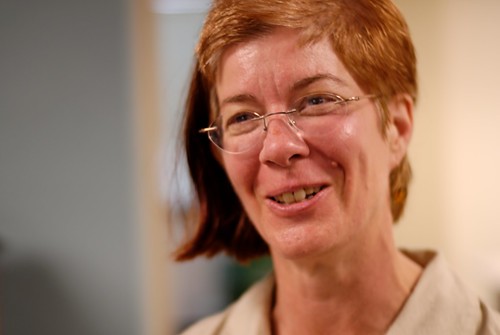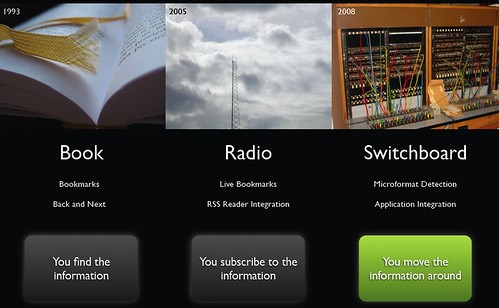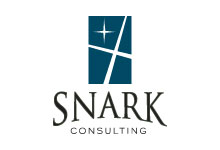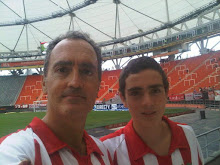Mozilla - Ten years after

Spanish highlights: el sujeto del extraño peinado es Mitchell Baker, el CEO de Mozilla. Estos dias se festejan los 10 años del browser (originado en Netscape, para los nostálgicos). No todo es fiesta: seguramente estará en las noticias el porqué de la pulseada Mozilla vs Explorer.
Esto no es más que otro capítulo de la vieja lucha establishemnt empresa-céntrica vs la libre iniciativa. Al final del día, mis amigos que saben dicen que Mozilla es muchísimo mejor. El futuro, según cuentan las propias autoridades de Mozilla, es Firefox 3: "moverse" en la información
=========================================================
Those were the days, my friends... when Netscape was released. January 1998. Ten years ago Internet was still rising, only a hundred or so of millions in the whole world, dotcom collapse didn´t occur yet, plenty of investment in Silicon Valley and here in LatAm watching how portals and ISP were adquired by major telcos.
But something is still going on. The "way we see the web" (WWSTW, and I´d like to be given the credits of this in other ten years) is still an issue. Is there any analogy in other fields? Explorer works "fine" in most applications but Mozilla excels. Explorer fails in more socialized versions of the web (try new Facebook apps in Explorer). But as perversity is the name of the game, most of designers thinks most in Explorer while doing their job.
Flashback, ten years ago. How was the feeling, then?
MOUNTAIN VIEW, Calif. (January 22, 1998) -- Netscape Communications Corporation (NASDAQ: NSCP) today announced bold plans to make the source code for the next generation of its highly popular Netscape Communicator client software available for free licensing on the Internet. The company plans to post the source code beginning with the first Netscape Communicator 5.0 developer release, expected by the end of the first quarter of 1998. This aggressive move will enable Netscape to harness the creative power of thousands of programmers on the Internet by incorporating their best enhancements into future versions of Netscape's software. This strategy is designed to accelerate development and free distribution by Netscape of future high-quality versions of Netscape Communicator to business customers and individuals, further seeding the market for Netscape's enterprise solutions and Netcenter business.





